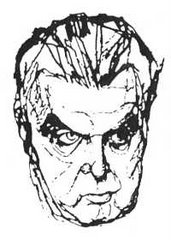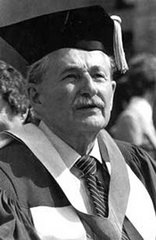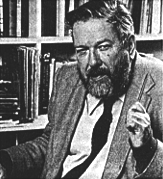Who to watch at COF...
Here are some people to watch at this week's Council of the Federation meetings in Moncton:
Ed Stelmach (AB)... Ed has the most to lose at this year's meeting. This is his first COF as Premier (he attended last year's as Alberta's IGA Minister), and he's in a tough spot. With both energy and climate change on the table, and with his personal approval numbers plummeting in Calgary, Ed has already come out swinging. He's said publicly that Alberta will not accept a national carbon-trading plan, meaning that anything approaching a pan-Canadian trading strategy will be considered a loss of face. This is a huge meeting for Ed.
"The Green Front" vs. Big Oil... Expect Gary Doer (MB) to line up with Jean Charest (PQ) and Gordon Campbell (BC) as the "Green Front". On their agenda: an East-West power grid, commitment to emissions targets, and a national carbon-trading. Stelmach is opposed, as is Lorne Calvert (SK) and Danny Williams (NL).
Gary Doer (MB).... Ralph Klein's departure and Pat Binns's replacement by 33-year-old Robert Ghiz makes Doer the longest-serving Premier in Canada. This, combined with his reputation as a conciliator, ought to draw extra media coverage.
Jean Charest (PQ)... Look for Charest to lead the charge on "The Green Front", but don't be surprised to see him trumpeting COF as a symbol of his government's achievements in promoting "open federalism." Charest's people will be looking to pump him up as a national conciliator -- an image that may be difficult to cultivate if the meeting turns into a showdown between the Greens and Big Oil. It will also be difficult to portray Charest as a defender of Quebec's interests while, at the same time, working together with the rest of the provinces. The tried and tested solution: to join with Alberta, Saskatchewan and Newfoundland & Labrador in calling for greater decentralization of federal power. Of note, Charest looks like he's pursuing Quebec's national identity outside COF, approaching Harper in a one-on-one venue.
Danny Williams (NL) and Lorne Calvert (SK)... These two will be the most entertaining. Watch for both to use COF's progress on energy or the environment as ammunition against a do-nothing Ottawa. But watch for the other premiers to keep Danny on a leash. Calvert has never performed particularly well on this stage, but he's facing a Fall election. If he doesn't come up with something to capture the media's attention, this will most certainly be his last COF.
Northern Premiers (YK, NW, NU)... Joe Handley (NW) appears to be positioning himself as the spokesman for northern development, linking the concept of regional transportation to federal efforts to promote Arctic sovereignty. Also, expect the usual pitch from Northern Premiers for cross-Canada support for northern devolution.
Canadian Nurses Association.... They'll be there protesting the fact that health care is not on the COF agenda this time around. If the premiers don't come up with something substantive on Day 1, the CNA could steal the headline.
Who not to watch:
Dalton McGuinty (ON)... This guy seems rudderless. Ontario's position at most premiers' meetings is difficult to pin down, and McGuinty is dropping few hints about his main priorities at this year's COF. I think he'd be happy to get his photo-op and soundbite, then get back to the campaign trail.
The Maritime Premiers -- Rodney MacDonald (NS), Shawn Graham (NB) and Robert Ghiz (PEI) have a combined two-and-a-half years experience between them. Forgive the media for confusing them with junior staffers.




